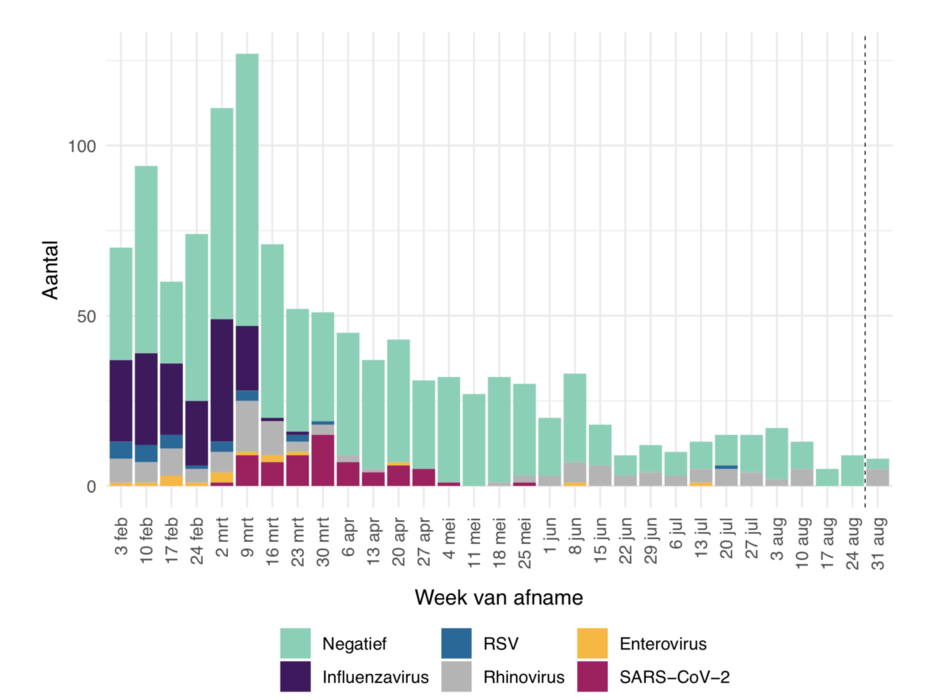Off_Field wrote:
I’ve only relied on google translate for the information on this so perhaps the german reads it differently. But this suggests false positives are presently a problem does it not?
Thanks for the link. This is a “letter to the editor” and it refers to antibody tests, not PCR tests. Antibody tests do indeed seem to have a problem with higher rates of false positives (the text you cited quotes 4,4% as one data point)
PCR tests are, by design, very specific, because they are only positive when detecting the SARS-CoV2 RNA sequence. Antibodies are less specific. Which is also, incidentally, why vaccines work.
MedEwok wrote:
Thanks for the link. This is a “letter to the editor” and it refers to antibody tests, not PCR tests. Antibody tests do indeed seem to have a problem with higher rates of false positives (the text you cited quotes 4,4% as one data point)PCR tests are, by design, very specific, because they are only positive when detecting the SARS-CoV2 RNA sequence. Antibodies are less specific. Which is also, incidentally, why vaccines work.
Thanks for the clarification :)
e: This link talks about PCR potential issues I think https://www.aerzteblatt.de/archiv/214370/PCR-Tests-auf-SARS-CoV-2-Ergebnisse-richtig-interpretieren
Off_Field wrote:
e: This link talks about PCR potential issues I think https://www.aerzteblatt.de/archiv/214370/PCR-Tests-auf-SARS-CoV-2-Ergebnisse-richtig-interpretieren
A truly excellent article that explains how even with a good PCR test, a significant number of false positives will occur in a population with a low prevalence of SARS-CoV2, while vice versa a large number of false negatives will occur in a population with lots of infected persons.
Overall, the so called “positive predictive value”, I.e. whether a positive test does indeed find an infected person, is shockingly low for the population at large, meaning lots of unnecessary quarantine and several people falsely tested negative who should really be in quarantine…
MedEwok wrote:
Specificity of most of the RT-PCR tests is 100% because the primer design is specific to the genome sequence of SARS-CoV-2.
That summarises the problem we currently face, where real-life practical decisions by public health officials are based on statements from highly specialised scientists such as virologists. Between their lab world and the real world, some assumptions don’t hold but this is never made transparent.
Rwy20 wrote:
Between their lab world and the real world, some assumptions don’t hold but this is never made transparent.
In a professional environment, these scientists will always be cautious not to make statements without qualifiers, because they are all well aware of the difficulty of transforming their lab observations to “the real world”. The media and the politicians tend to omit these qualifiers for the sake of simplicity, or due to ignorance, often by quoting scientists out of context.
The article linked by @Off_Field above is really good at explaining the difficulties the PCR tests face “in the real world”, for those who can read German. The statement "the PCR test has a near 100% specificity " and "there are significant numbers of false positives/ false negatives " are not mutually exclusive for those with a scientific education.
We are having a few PCR tests that are highly suspect. They come back ‘lightly positive’ and the patients never seem go get sick; neither do they test positive again.
The jury is out as to whether there might be contamination somewhere in the lab or supply chain of reagents or whether the patients may have had different coronaviruses in the past or… I suppose it’s always possible that they are true positives.
I had two false negatives before a positive. I have heard the same from almost everyone I know who has gotten sick. Positives seem to show up starting 4+ days after infection. Again, this is anecdotal, but in my limited experience almost a rule.
My impression is that false positives are rarer.
WhiskeyPapa wrote:
I had two false negatives before a positive. I have heard the same from almost everyone I know who has gotten sick. Positives seem to show up starting 4+ days after infection. Again, this is anecdotal, but in my limited experience almost a rule.My impression is that false positives are rarer.
What I have read so far fits in with your experience and impression. It is “easy” to get a false negative, because you might be too late or too early for the swab, you might not have scratched the throat properly (basically, it the test doesn’t induce a gag reflex, it was performed one or the person being tested has a reduced gag reflex…), the swab might have been transported too long or at inadequate temperature etc.
For a false positive PCR, one would need some kind of contamination in the lab to occur, or suffer from a genetically very similar coronavirus (this, afaik, is not the case with the common cold coronavirus variants…they should be discernible in a PCR)
The weekly report by the health authorities in the Netherlands
https://www.rivm.nl/documenten/wekelijkse-update-epidemiologische-situatie-covid-19-in-nederland
https://www.rivm.nl/sites/default/files/2020-09/COVID-19_WebSite_rapport_wekelijks_20200908_1159_0.pdf
has an interesting graph on page 35. Besides the mass testing going on, there is a program to track viruses in sick patients with symptoms of respiratory disease, visiting their GP (huisarts). A sample of those is examined to see which virus is present:
So, when would think that Sars-Cov-2 was last seen in an actual sick patient seeing their doctor? Last week? Last month? Certainly not back in May?

The uptick in the last weeks seems to be able just Rhinoviruses.